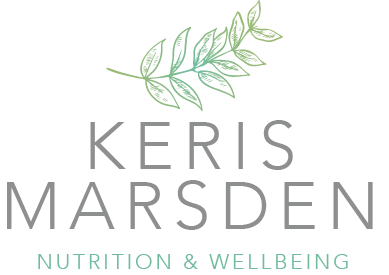Troubleshooting gut issues: constipation, loose stools, gas and reflux
It’s common to experience digestive issues occasionally and the great news is there maybe some simple solutions for some of symptoms including loose stools, constipation, flatulence and acid reflux.
IMPORTANT: if your symptoms persist it’s important to speak to your GP.
Ongoing bloating, acid reflux and loose stools should all be investigated thoroughly. If you’re passing mucous or observe blood in your stool, seek medical advice immediately.
Constipation
Staying hydrated is key to having regular bowel movements.
Aim to consume 6-8 glasses of water daily and an extra 500ml for every hour you sweat if you exercise or during the warmer weather.
Drinking warm water first thing in the morning may help kick start your bowel movements.
It’s also important to consume a mixture of soluble and insoluble fibre by eating low sugar fruits, wholegrains, vegetables, lentils, beans and nuts.
The following are good sources of fibre:
Berries or stewed fruits like apples and pears
Salad vegetables
Peppers and avocados
Rolled oats, brown rice and sweet potatoes
Flaxseeds, nuts and pumpkin seeds
Chia seeds soaked in water for 2 hours to make a jelly like substance
Green vegetables including broccoli, bok choy and rocket
Root vegetables such as celeriac, beetroot and parsnips
Magnesium supplementation (in citrate or oxide form) can also help soften stools and promote daily bowel movements. Taking 200-400mg daily is beneficial.
Probiotics are often helpful for constipation, in particular Bifidobacterium lactis BB-12® and Bifidobacterium lactis HN019 can help improve regularity.
Bloating and excess gas
Despite fibre being helpful for digestion it’s best to find your personal fibre tolerance to avoid exacerbating digestive symptoms.
This involves you consuming enough fibre for regular bowel movements but not experiencing excessive gas and bloating.
You could start by following a low fibre diet for a few days and then gradually increasing the amount to find your sweet spot.
Some people find a low FODMAP diet helps with bloating and excess gas.
FODMAP stands for fermentable oligosaccharides, disaccharides, monosaccharides and polyols. These are types of carbohydrates (sugars) that create more gas in the digestive system and often lead to uncomfortable symptoms after eating.
Some research suggests a low FODMAP diet may help manage bloating, excess gas, abdominal pain or altered bowel movements.
You don’t need to adhere to the diet strictly but use the guidance to find some trigger foods that you may feel better eliminating, for example, onions, garlic or dairy. And find your tolerance for all other fermentable foods by reducing your serving size.
Other possible food triggers for bloating include:
Wheat/gluten
Dairy
Yeast
Alcohol
Sugar
Beans
It can be helpful to trial eliminating any you suspect maybe causing an issue for a few weeks to see if your symptoms reduce.
Chewing your food well and favouring cooked sources (rather than too much raw salad or fruit) can make fibre easier on your digestive system. Soaking and slow cooking beans and other pulses can also help break down the fibre in advance.
You may also need to rule out something called Small Intestinal Bacterial Overgrowth (SIBO) as a possible cause of bloating and gas. With SIBO, there is already an overgrowth of bacteria within the small intestine. A nutritional therapist or gastroenterologist will usually treat SIBO protocol with a combination of diet changes, antibiotics (rifaximin and neomycin) and supplement recommendations.
Loose stools
A common cause of loose stools is poor fat digestion either due to an enzyme deficiency or insufficient bile at meal times. Fatty foods also increase gut motility which can trigger diarrhoea.
Having your gallbladder removed can also be a cause of loose stools.
With both of these a helpful place to start is by reducing the fat in your diet and supporting fat digestion with supplements, these include:
Taking a tbsp of lecithin granules with meals or sprinkling over food
Taking lipase enzymes (or a digestive enzyme formula that contains lipase)
TUDCA (tauroursodeoxycholic acid) is a bile acid supplement that can support digestion
Here are some examples of foods to avoid:
Fried, oily or greasy foods
Cheese
Cream
Ice-cream
Milk
Fast food
If your loose stools are linked to food poisoning, travelling or antibiotics you can consider taking a form of probiotic yeast called saccharomyces boulardii.
This is often available in pharmacies or health food shops.
Other foods speed up motility and may cause diarrhoea include:
Caffeine (tea and coffee, cokes/diet cokes)
Fatty foods (as per above)
Sweeteners
Alcohol
Whey protein or dairy products (this could be a sign of lactose intolerance)
Conditions to rule out
Persistent diarrhoea can be an indication of coeliacs or inflammatory bowel disease (Crohn’s and ulcerative colitis) so it’s important to discuss investigations and diagnostic tests with your GP.
Acid reflux
If you suffer from acid reflux it’s important to seek medical guidance and discuss appropriate medications.
A gastroenterologist can also help identify any underlying causes like:
Small Intestinal Bacterial Overgrowth
Gastroparesis
H Pylori
Hernias
Constipation
Thyroid issues
There are also several simple nutrition adaptations that can be helpful including:
Elimination of highly acidic and common trigger foods including coffee, caffeine, spicy foods, chocolate, tomatoes, alcohol, fizzy drinks, high fat foods
Elimination of sticky foods like butter or peanut butter (these can irritate the oesophagus and impact sphincter function)
Eat slowly, breathe deeply before meals and chew food thoroughly
Avoid consuming large amounts of liquids at meal times
Reflux if often cause by bloating so trialling a low fermentable diet like low FODMAP, Fast Tract Diet or Specific Carbohydrate Diet (SCD) can be helpful
If you’d like some professional help resolving your gut issues you can contact me for a free 15 minute call.

